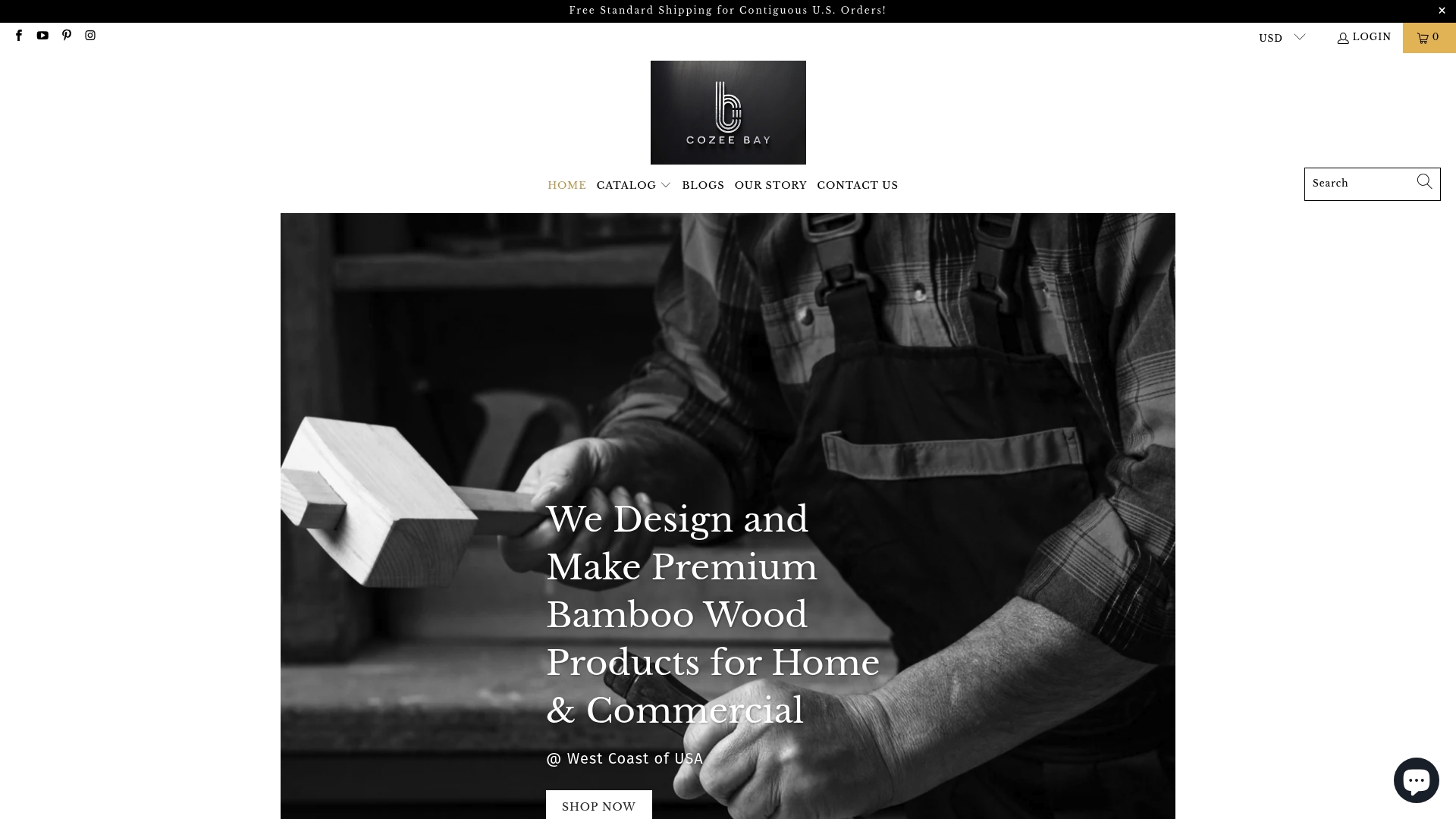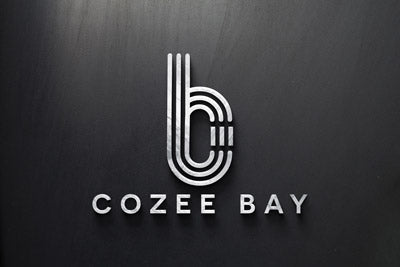Your Cart is Empty
Free Standard Shipping for Contiguous U.S. Orders!
Free Standard Shipping for Contiguous U.S. Orders!
Catalog

Complete Guide to Bamboo Product Applications in Commercial Spaces
November 18, 2025 6 min read
More than 30 million acres of bamboo are harvested globally each year, making it one of the fastest renewable resources in the world. As businesses search for durable, sustainable solutions, bamboo products are quickly emerging as a smart alternative to traditional materials. From sturdy flooring in offices to sleek restaurant furniture, engineered bamboo is changing the way commercial environments blend ecological responsibility with cutting-edge design and performance.
Table of Contents
- Bamboo Products in Commercial Environments Defined
- Types of Bamboo Products Used Commercially
- Key Benefits and Functional Characteristics
- Popular Applications and Real-World Examples
- Comparing Bamboo Products to Alternatives
- Sustainability, Maintenance, and Cost Insights
Key Takeaways
| Point | Details |
|---|---|
| Sustainable Material | Bamboo offers a rapidly renewable resource that significantly reduces environmental impact compared to traditional materials. |
| Versatile Applications | Engineered bamboo products are used in diverse sectors such as construction, furniture, textiles, and bioenergy, demonstrating their broad commercial potential. |
| Performance Advantages | With a high strength-to-weight ratio, bamboo delivers exceptional durability and structural integrity, making it a strong alternative to conventional materials. |
| Economic Efficiency | Bamboo products provide long-term cost savings through reduced maintenance and replacement needs, ultimately benefiting business budgets. |
Bamboo Products in Commercial Environments Defined
Commercial environments increasingly recognize bamboo as a versatile and sustainable material with transformative potential across multiple industries. Engineered bamboo represents a sophisticated approach to material development, involving processing bamboo culms into smaller, precisely crafted elements that can be strategically bonded to create robust panels and components MDPI.
Bamboo’s commercial applications span far beyond traditional expectations. According to FAO, these products encompass an impressive range of sectors including:
- Construction materials
- Furniture design
- Textile manufacturing
- Paper production
- Bioenergy solutions
The material’s extraordinary versatility is further demonstrated by advanced processing techniques like pyrolysis, which can convert bamboo into multiple energy forms such as charcoal, oil, and gas. This technological adaptability makes bamboo a compelling alternative to traditional commercial materials.
In commercial settings, bamboo products offer unique advantages: lightweight construction, remarkable strength, rapid renewability, and minimal environmental impact. From restaurant kitchens to office spaces, these products provide aesthetic elegance combined with functional durability. Businesses seeking sustainable infrastructure solutions are increasingly turning to engineered bamboo as a smart, forward-thinking material choice.
Types of Bamboo Products Used Commercially
Commercial applications of bamboo have evolved dramatically, spanning an impressive range of industries and product types. Bamboo Sahihai highlights the material’s remarkable versatility, showcasing its utility across multiple commercial sectors.
Bamboo products in commercial environments can be broadly categorized into several key application areas:
- Construction Materials: Flooring, roofing, wall panels
- Furniture: Indoor and outdoor design pieces
- Textiles: Clothing and bedding products
- Paper Products: Various commercial and industrial uses
- Bioenergy Solutions: Charcoal and briquette production
Engineered bamboo represents a sophisticated approach to material development. According to MDPI, advanced manufacturing techniques like laminated bamboo and bamboo scrimber enable the creation of specialized composite materials suitable for structural and decorative commercial applications.
These innovative bamboo products offer significant advantages for businesses. Beyond their environmental sustainability, they provide exceptional durability, lightweight construction, and aesthetic versatility. From restaurant design to office infrastructure, bamboo solutions are transforming how commercial spaces approach material selection, delivering both functional performance and ecological responsibility.

Key Benefits and Functional Characteristics
Engineered bamboo emerges as a transformative material with exceptional functional characteristics that set it apart from traditional commercial solutions. MDPI research highlights its remarkable strength-to-weight ratio, demonstrating how this innovative material delivers superior performance while maintaining impressive structural integrity.
The key functional benefits of bamboo products in commercial environments include:
- Exceptional durability
- Lightweight construction
- High dimensional stability
- Rapid renewable resource
- Minimal environmental impact
- Superior acoustic and thermal insulation
According to FAO, bamboo’s versatility extends beyond traditional applications, with advanced processing techniques like pyrolysis enabling conversion into multiple energy forms including charcoal, oil, and gas. This technological flexibility positions bamboo as a truly adaptive material for forward-thinking commercial environments.
Beyond its technical advantages, bamboo products offer businesses a sustainable alternative that doesn’t compromise on performance. Its rapid growth cycle, low environmental footprint, and ability to be transformed into sophisticated commercial materials make it an increasingly attractive choice for organizations seeking to balance ecological responsibility with functional excellence. From construction elements to sophisticated design solutions, bamboo represents a material that meets the complex demands of modern commercial spaces.
Popular Applications and Real-World Examples
Commercial bamboo applications represent a revolutionary approach to sustainable design and functional materials across diverse industries. Bamboo Sahihai highlights the material’s extraordinary versatility, demonstrating its potential in multiple commercial sectors.
Key commercial applications of bamboo include:
- Construction: Innovative flooring, roofing, and wall panel solutions
- Furniture Design: Sleek indoor and outdoor furniture pieces
- Textile Manufacturing: Sustainable clothing and bedding products
- Bioenergy Solutions: Advanced charcoal and briquette production
- Architectural Elements: Structural and decorative components
According to MDPI, engineered bamboo materials are particularly transformative in commercial construction, enabling the creation of sophisticated composite materials that serve both structural and aesthetic purposes. These advanced applications demonstrate bamboo’s potential to replace traditional materials in cutting-edge architectural and design projects.
From eco-friendly restaurant interiors to high-performance office spaces, bamboo products are reshaping commercial environments. Businesses are increasingly recognizing the material’s potential to deliver exceptional performance while maintaining a strong commitment to sustainability. Whether used in sleek furniture design, innovative building materials, or advanced textile production, bamboo represents a forward-thinking solution that meets the complex demands of modern commercial spaces.
Comparing Bamboo Products to Alternatives
Engineered bamboo represents a revolutionary alternative to traditional materials, offering unprecedented performance and sustainability. MDPI research reveals that these advanced materials deliver comparable strength and durability to conventional wood products, with significant ecological advantages.
Key comparative advantages of bamboo over traditional alternatives include:
- Sustainability: Rapid renewable growth cycle
- Performance: Comparable structural integrity
- Environmental Impact: Significantly lower carbon footprint
- Cost-Effectiveness: More economical long-term solution
- Versatility: Adaptable across multiple commercial applications
According to FAO, bamboo products provide a comprehensive sustainable alternative across various commercial sectors, from construction to furniture manufacturing. This positions bamboo as not just an eco-friendly choice, but a strategically superior material that meets modern commercial demands.
Businesses evaluating material options will find bamboo particularly compelling. Its ability to match or exceed traditional material performance while offering substantial environmental benefits makes it an increasingly attractive solution.
 From reducing carbon emissions to providing innovative design possibilities, bamboo vs traditional wood guide demonstrates why forward-thinking organizations are reimagining their material strategies with this remarkable resource.
From reducing carbon emissions to providing innovative design possibilities, bamboo vs traditional wood guide demonstrates why forward-thinking organizations are reimagining their material strategies with this remarkable resource.
Sustainability, Maintenance, and Cost Insights
Engineered bamboo represents a breakthrough in sustainable commercial materials, offering an unprecedented combination of environmental responsibility and economic efficiency. MDPI research underscores its remarkable attributes, highlighting how these advanced materials deliver exceptional sustainability with minimal maintenance requirements.
Key sustainability and cost insights for bamboo products include:
- Rapid Renewable Growth: 3-5 year maturation cycle
- Low Maintenance: Minimal upkeep compared to traditional materials
- Carbon Sequestration: Superior environmental performance
- Long-Term Cost Efficiency: Reduced replacement and maintenance expenses
- Versatile Lifecycle: Multiple potential product transformations
According to FAO, bamboo’s extraordinary versatility extends beyond traditional applications. Its ability to be converted into diverse products like charcoal, oil, and other bioenergy solutions demonstrates its comprehensive economic and ecological value. Why choose bamboo for sustainable living reflects the material’s transformative potential for environmentally conscious businesses.
Commercial organizations increasingly recognize bamboo as more than just an alternative material. It represents a strategic investment in sustainable infrastructure, offering a holistic solution that balances performance, environmental stewardship, and long-term economic benefits. From reducing carbon footprints to minimizing lifecycle costs, bamboo products are redefining sustainable commercial design.
Elevate Your Commercial Space with Sustainable Bamboo Solutions
The shift toward engineered bamboo in commercial environments addresses critical challenges like durability, sustainability, and aesthetic appeal. If you are looking for eco-friendly products that combine strength, rapid renewability, and stylish design, bamboo offers an unmatched solution. Businesses such as restaurants, offices, and senior living centers seek materials that not only perform but also reduce environmental impact without sacrificing quality or elegance.
Discover how Cozee Bay’s curated collection of bamboo products transforms commercial spaces while supporting your sustainability goals. Our Commercial Paper Towel Dispensers | Cozee Bay® exemplify this perfect balance of functionality and eco-conscious design.

Upgrade your commercial environment today with bamboo products that deliver durability, style, and responsible sourcing. Explore our full range including sleek designs for both home and business at Cozee Bay. Start your journey toward sustainable innovation and enjoy free shipping and a money-back guarantee. Check out our Bamboo Paper Towel Dispenser- A Sleek Look Home or Office collection to find the perfect fit for your space.
Frequently Asked Questions
What are the primary applications of bamboo products in commercial spaces?
Bamboo products are utilized across various sectors including construction materials, furniture design, textile manufacturing, paper production, and bioenergy solutions. Their versatility allows them to serve multiple purposes in commercial environments.
How does engineered bamboo compare to traditional materials in terms of sustainability?
Engineered bamboo offers a rapid renewable growth cycle and a significantly lower carbon footprint compared to traditional materials. Its sustainable characteristics make it an environmentally friendly alternative for commercial applications.
What are the key benefits of using bamboo products in commercial construction?
Bamboo products provide several advantages such as exceptional durability, a high strength-to-weight ratio, lightweight construction, minimal environmental impact, and superior acoustic and thermal insulation, making them ideal for various construction applications.
What maintenance requirements are associated with bamboo products in commercial settings?
Bamboo products require minimal maintenance compared to traditional materials, making them cost-effective and practical for long-term use in commercial spaces. Their durability ensures that they hold up well with little upkeep, contributing to lower overall lifecycle costs.
Recommended
Leave a comment
Comments will be approved before showing up.
Subscribe
Sign up to get the latest on sales, new releases and more …

